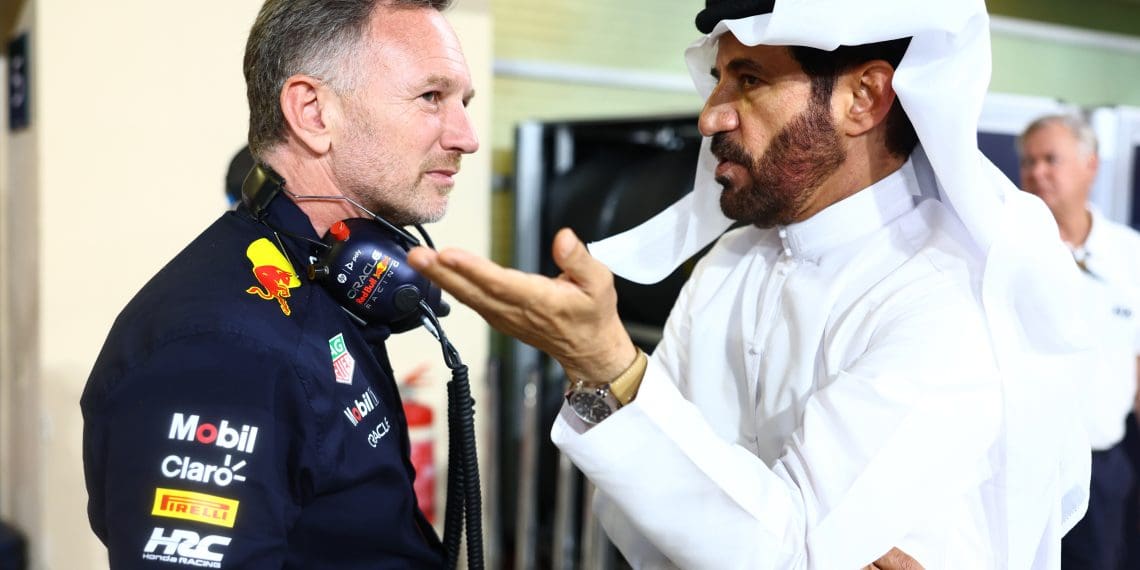With Formula 1’s 2025 season fast approaching, FIA President Mohammed Ben Sulayem has vowed to restructure race officiating, promising a new wave of stewards and race directors while rejecting diversity quotas in favor of merit-based appointments.
Speaking at the FIA Officials Summit at Circuito de Madrid, Jarama, Ben Sulayem confirmed sweeping changes, particularly in race direction and stewarding, following Niels Wittich’s departure as F1 Race Director.
“Our selection (of stewards) should be broader. We should not be limited, and that is why tomorrow with the stewards, we will have new blood.”
“There will certainly be new blood, and there will be more than one [new race director]. That’s for sure.”
With increased scrutiny on race control decisions in recent seasons, the FIA is looking to professionalize its officiating structure while balancing financial, logistical, and operational constraints.
New Race Directors & Stewards Coming for 2025
The departure of Niels Wittich, who took over after the controversial 2021 Abu Dhabi Grand Prix, has opened the door for a new multi-person race direction team.
🔹 More than one race director to be appointed for 2025
🔹 New stewards to expand F1’s officiating pool
🔹 Increased focus on structured training programs
Ben Sulayem emphasized that the next generation of F1 stewards must be properly trained and developed, not simply thrown into the fire.
“You can’t just throw someone into this big challenge.”
While teams and drivers frequently criticize race control decisions, Ben Sulayem also pointed out that funding remains a major issue, noting that many in F1 complain about officiating but are unwilling to pay for its improvement.
“The teams can complain, the drivers can complain, but then they don’t want to pay for it.”
No Diversity Quotas – FIA Stands Firm on Merit-Based Appointments
While the FIA has committed to broadening its officiating pool, Ben Sulayem categorically rejected the idea of diversity quotas, arguing that appointments must be made on skill, not optics.
“We don’t have women because we have to accept 30 percent; we accept women based on their merit and credibility because they are good.”
“We hire non-European people from other countries because they are good, they are trained, they have the passion to compete. Not because, oh, I have to have this color, this religion.”
The FIA’s stance aligns with its goal of creating a “strong and effective” officiating structure, rather than one that prioritizes appearance over competence.
“If you choose people based on quotas, you will not have a strong FIA. You will have a weak one because you won’t deliver what you promise.”
FIA’s Road to 2025: A More Professional Officiating Era?
Ben Sulayem remains adamant that F1 officiating needs major reforms, but constructive criticism—not blind blame—is key to progress.
“It’s easy to blame the FIA. Why can’t you be productive in your criticism and say, how can we find a solution?”
🔹 Expanded training programs for stewards
🔹 New race directors & multiple officiating teams
🔹 Increased professionalization in stewarding decisions
With inconsistencies plaguing recent F1 races, these reforms could help restore credibility to FIA race control. However, only time will tell if the changes will yield better, fairer racing decisions—or if controversy will continue to define F1 officiating.
Final Take: A New Era of F1 Stewarding—Or Just More Promises?
Ben Sulayem’s push for change is long overdue, but whether it actually improves race control remains to be seen.
🔹 Expanding the officiating pool is a step in the right direction
🔹 Replacing Wittich with multiple race directors could bring more balance
🔹 Rejecting diversity quotas ensures FIA prioritizes competence over optics
However, teams, drivers, and fans will only judge these efforts based on results. If inconsistencies continue in 2025, the pressure on the FIA will only grow stronger.
The real test starts when the lights go out in Melbourne.







